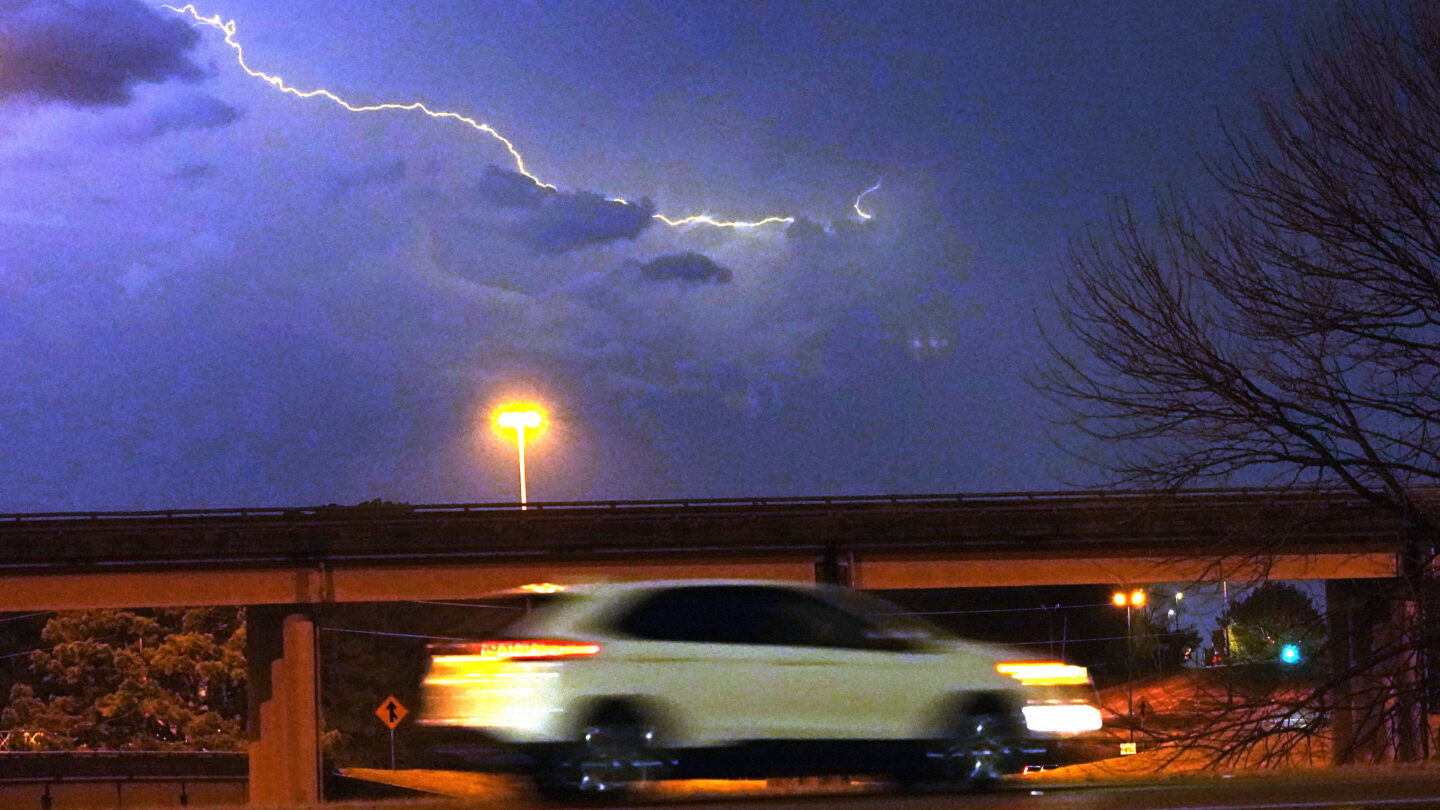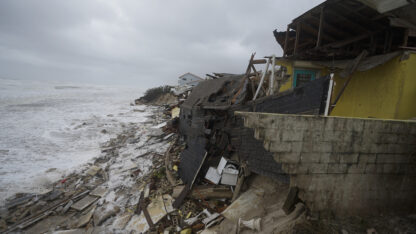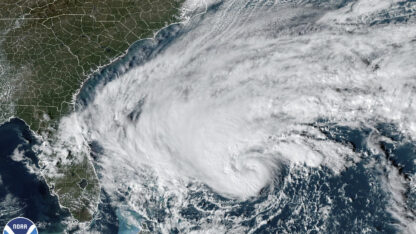Tornadoes damaged numerous homes, destroyed a fire station, briefly trapped people in a grocery store and ripped the roof off an apartment complex in Mississippi and Alabama, and meteorologists said the threat of dangerous storms remained Wednesday near the Gulf Coast in Mississippi, Alabama, Florida and Georgia.
The National Weather Service had warned that strong twisters capable of carving up communities over long distances were possible as the storm front moved eastward from Texas, threatening a stretch of the United States where more than 25 million people live. Emergency responders had no reports of fatalities but were waiting for daylight to make sure.
The “threat for supercells capable of all severe hazards continues,” forecasters said after multiple tornado warnings were issued starting Tuesday afternoon and continued through the night.
In the west Alabama town of Eutaw, video from WBMA-TV from showed large sections of the roof missing from an apartment complex, displacing 15 families in the middle of the night.
“We’ve got power lines, trees just all over the road,” Eutaw Police Chief Tommy Johnson told WBRC-TV. “In the morning when we get a little daylight, we’re going to do a door-by-door search to make sure no one is trapped inside or anything like that.”
A suspected tornado damaged numerous homes during the night in Hale County, Alabama, where the emergency director said more than a third of the people live in highly vulnerable mobile homes.
“I have seen some really nice mobile homes tied down, but they just don’t stand a chance against a tornado,” Hale County Emergency Management Director Russell Weeden told WBRC just ahead of the storm.
The weather service confirmed that tornadoes hit the ground in Mississippi. Images of the wreckage in Caledonia showed a grocery store damaged, a fire station shredded and a house toppled, but Lowndes County Emergency Management Agency Director Cindy Lawrence told WTVA-TV that everyone escaped injury.
Hail stones crashed against the windows of City Hall in the small town of Tchula, Mississippi, where sirens blared and the mayor and other residents took cover. “It was hitting against the window, and you could tell that it was nice-sized balls of it,” Mayor Ann Polk said after the storm passed.
High winds downed power lines, and flooding was a hazard as more than 5 inches (13 centimeters) of rain fell within several hours in some places. More than 50,000 customers in Mississippi and Alabama were without electricity Wednesday morning, according to poweroutage.us, which tracks utility outages.
About 100 people hunkered down in a tornado shelter in Starkville, Mississippi, where Craig Ceecee, a meteorologist at Mississippi State University, said he peered out at “incredibly black” skies. Ceecee has assembled a database of Mississippi tornado shelters and found several towns without any.
“I’ve had to go through events without (shelters), and trust me, they were scary,” Ceecee said.
Meanwhile, heavy snow has snarled traffic in some parts of the Upper Midwest.
Minneapolis-St. Paul International Airport tweeted Tuesday afternoon that its runways were closed due to fast snowfall rates and reduced visibility. Air traffic websites showed some inbound planes circling or diverting to other airports such as St. Cloud, Minnesota, and Fargo, North Dakota. The National Weather Service reported nearly 4 inches (10 centimeters) of snow on the ground at the airport by noon.
The airport said it was able to reopen its first runway hours later, and planes were landing as scheduled on Wednesday.
Michael Warren in Atlanta, Jill Bleed in Little Rock, Arkansas; Michael Goldberg in Jackson, Mississippi; Sara Cline in Baton Rouge, Louisiana; and Steve Karnowski in Minneapolis contributed to this report.









